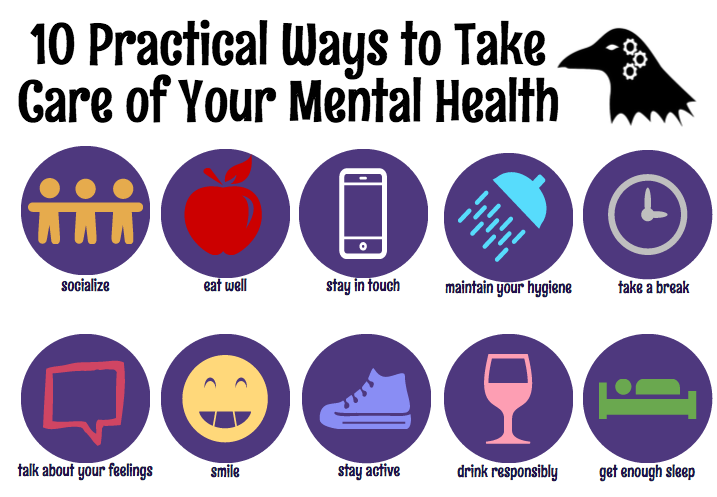In today’s fast-paced and demanding world, mental health care has become a prominent concern for individuals seeking ways to maintain their well-being. With the increasing recognition of the importance of mental health, therapy trainings have emerged as powerful resources to unlock one’s inner strength and promote overall emotional wellness. Through professional guidance and evidence-based techniques, these trainings offer individuals the opportunity to heal, grow, and develop coping strategies to navigate life’s challenges. In this article, we will delve into the power of therapy trainings, exploring their transformative potential in promoting mental health care. Embarking on this journey provides a pathway to self-discovery, resilience, and ultimately, a balanced and fulfilling life.
Importance of Therapy Trainings
Therapy trainings play a crucial role in the field of mental health care. They provide mental health professionals with the knowledge, skills, and tools necessary to effectively support individuals facing various psychological challenges. These trainings equip therapists with a solid foundation of understanding and equip them to provide high-quality care to their clients.
By engaging in therapy trainings, mental health care providers gain a deeper understanding of different therapeutic approaches and techniques. This knowledge allows them to tailor their interventions to the unique needs of each individual. Whether it’s cognitive-behavioral therapy, psychodynamic therapy, or other modalities, these trainings empower therapists to utilize evidence-based methods that have demonstrated positive outcomes in treating mental health issues.
Furthermore, therapy trainings also focus on developing essential interpersonal skills. Effective communication, active listening, and empathy are key components of successful therapeutic relationships. Through trainings, mental health professionals enhance their ability to establish a safe and trusting environment, enabling clients to open up and share their experiences more freely.
Beyond the clinical aspects, therapy trainings also prioritize self-care and professional development. Mental health care providers are exposed to significant stress and emotional demands in their work. Through these trainings, they learn strategies to manage their own well-being, ensuring they are better equipped to support their clients effectively.
In conclusion, therapy trainings are of paramount importance in the realm of mental health care. They not only enhance the therapist’s clinical skills but also contribute to fostering therapeutic relationships, promoting self-care, and ensuring the overall well-being of both the client and the mental health professional.
Types of Therapy Trainings
Cognitive Behavioral Therapy (CBT):
Training in Cognitive Behavioral Therapy focuses on helping individuals identify and change negative thought patterns and behaviors that contribute to their mental health challenges. Through CBT, therapists help clients develop strategies to reframe their thoughts and adopt more adaptive beliefs, leading to healthier emotional well-being.Psychodynamic Therapy:
Psychodynamic therapy trainings delve into the underlying causes of mental health concerns by examining the unconscious mind. Therapists are taught to explore past experiences, childhood traumas, and relationship patterns that might have shaped a client’s current mental state. By understanding these factors, therapists can help clients gain insight into their emotions, thoughts, and behaviors.Solution-Focused Brief Therapy (SFBT):
In SFBT trainings, therapists are trained to focus on finding solutions rather than dwelling on problems. This approach emphasizes the present and future, aiming to help clients identify their strengths and develop practical strategies to achieve their goals. SFBT is often a time-sensitive approach that encourages clients to envision a positive future and work towards it with the guidance of their therapist.
These three types of therapy trainings represent just a fraction of the diverse approaches available to mental health care professionals. Each training equips therapists with unique tools and techniques that can be applied based on the individual needs and preferences of their clients. Through these trainings, therapists acquire the skills necessary to unlock their inner strength and provide effective support to those seeking mental health care.
Benefits of Therapy Trainings
Enhancing Therapeutic Skills: One of the key advantages of therapy trainings is the opportunity to enhance one’s therapeutic skills. These trainings provide mental health care professionals with a deeper understanding of different therapeutic approaches and techniques. Through interactive workshops and practical sessions, therapists can refine their abilities to connect with clients, engage in active listening, and employ effective interventions. Such skill development enables therapists to provide more comprehensive and client-centered care, tailored to the unique needs of each individual.
Expanding Knowledge Base: Therapy trainings also play a vital role in expanding the knowledge base of mental health care providers. These programs offer new insights into the latest research, evidence-based practices, and emerging treatment modalities. By staying up-to-date with advancements in the field, therapists gain a broader perspective on mental health issues and are better equipped to address the complex concerns that their clients may face. This continuous learning process fosters professional growth and ensures that therapists can offer the most relevant and effective interventions.
Building a Supportive Network: Participating in therapy trainings allows mental health care professionals to connect and build relationships with peers in the industry. Engaging in collaborative group discussions and networking activities not only provides a sense of community but also offers opportunities for ongoing support and professional development. This network of like-minded individuals serves as a platform for sharing knowledge, exchanging ideas, and seeking guidance when faced with challenging cases. These connections can be invaluable resources throughout a therapist’s career, promoting ongoing learning and collaboration within the mental health care community.

Discover
Overall, therapy trainings offer numerous benefits for mental health care professionals, including skill enhancement, knowledge expansion, and the opportunity to build a supportive network. By continuously investing in their professional development, therapists can unlock their inner strength and ensure they are equipped to provide the highest quality of care to those in need.
